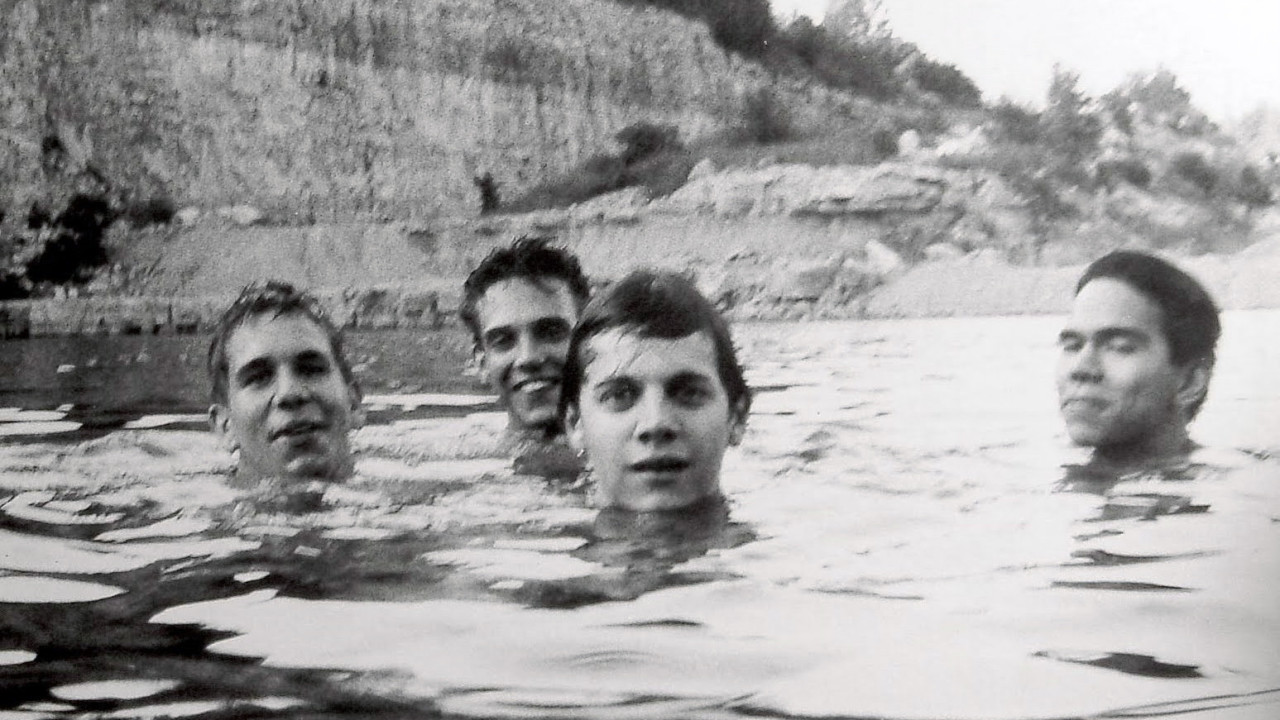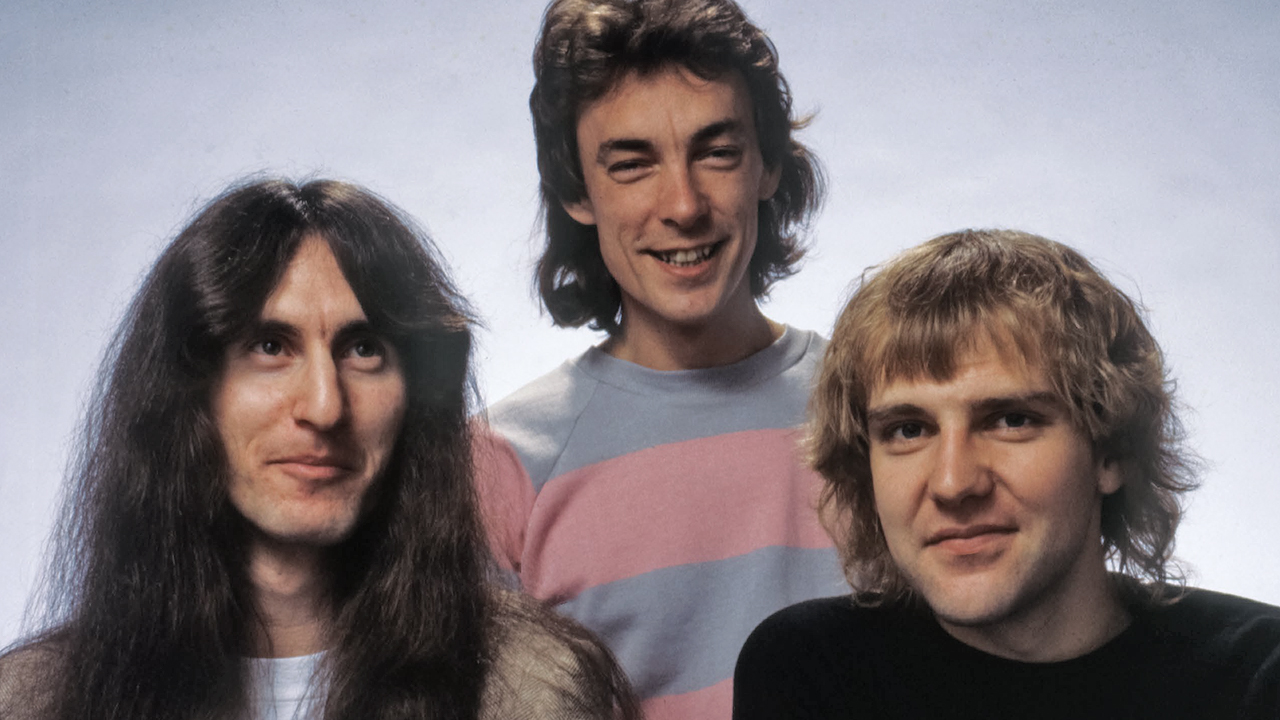Opinion: In Praise of...Slint's Spiderland
A tribute to the Louisville, Kentucky band's 'post-rock' materpiece

Select the newsletters you’d like to receive. Then, add your email to sign up.
You are now subscribed
Your newsletter sign-up was successful
Want to add more newsletters?

Every Friday
Louder
Louder’s weekly newsletter is jam-packed with the team’s personal highlights from the last seven days, including features, breaking news, reviews and tons of juicy exclusives from the world of alternative music.

Every Friday
Classic Rock
The Classic Rock newsletter is an essential read for the discerning rock fan. Every week we bring you the news, reviews and the very best features and interviews from our extensive archive. Written by rock fans for rock fans.

Every Friday
Metal Hammer
For the last four decades Metal Hammer has been the world’s greatest metal magazine. Created by metalheads for metalheads, ‘Hammer takes you behind the scenes, closer to the action, and nearer to the bands that you love the most.

Every Friday
Prog
The Prog newsletter brings you the very best of Prog Magazine and our website, every Friday. We'll deliver you the very latest news from the Prog universe, informative features and archive material from Prog’s impressive vault.
What strikes you the most when you watch home movie footage of Slint was just how young they were. When they recorded their masterpiece, Spiderland, they were just four kids. Four weird fucking kids from Louisville, Kentucky who saw, felt and heard music differently to anyone else they knew, and probably to anyone else ever.
It was the autumn of 1990 and the four of them – guitarist-vocalist Brian McMahan, drummer Britt Walford, guitarist David Pajo and bassist Todd Brashear – were aged between 20 and 22 yet, watching Lance Bang’s documentary of the time (Breadcrumb Trail), they looked much younger. They barely spoke – quiet, contemplative, smart and insular – and they were definitely unusual. They would play weird practical jokes, titled all the songs on their first album, Tweez, after their parents’ first names, named the band after McMahan’s pet fish and had a drummer, Walford, who had a tweezer collection. When they toured (which was rare), they put up signs in the back of their van that said things like “People are nicer back home”. But what they did with two guitars, drums and bass was unlike anything anyone had ever heard.
No-one knew it – except their former producer Steve Albini – but in 1990 they were on the brink of making something that would be one of the underground’s most influential records. It would sell just 5,000 copies when it was released, but its twisting, shifting landscapes and ominous, growling power would help give rise to an entire genre – post-rock. Sigur Ros, Godspeed! You Black Emperor and many more besides not only drew influence but became disciples. Mogwai’s Dominic Aitchison called it “the bedrock upon which so many other bands set out their sonic stalls.” Yet Slint broke up before Spiderland was even released.
Perhaps it’s unsurprising that Slint were ahead of their time – they were always early. Walford and McMahan played in a hardcore band, aged 11, while a few years later their next band – Squirrel Bait – was good enough to impress a pre-Nirvana Dave Grohl. Pajo was also on the scene, still a pimply teenager. After forming Slint, and recording their wild debut Tweez with Albini, they spent three years evolving in the basement of a Walford’s mother’s house. They would play a single riff for hours on end, McMahan attempting to catch up with the more technically accomplished Pajo; Pajo attempting to downgrade his skill to find McMahan’s spirit and fire. The band’s aim was to make music with hardcore’s confrontation and unease, but without actually being confrontational with it.
That fed into their choice of producer too – while they liked and respected Albini, they didn’t want the provocative edge he tended to lend to albums he worked on. Instead, they wanted the music to be simply laid as they had written it. Brian Paulson was chosen instead, and the band later remembered that they worked quickly with him, but within an intense and stressful environment. Something about that, though, fed into the music and so Spiderland became the product of four passionate young men in a fevered atmosphere, making complex music that, at its core, was pure hormonal emotion.
McMahan was perhaps the most emotional of the four. Though it’s in the more frequent instrumental moments that those emotions are most powerful, it’s in Slint’s lyrics that they are most explicit. Underconfident as a singer, McMahan whispered and screamed the words he and Walford wrote. In them are fears about getting older, confusion at their place in life, and a terrible vulnerability. There were times, Pajo recalled later, that McMahan would rush off to be sick while recording his vocals, so terrified was he of opening up.
It would take a great toll on him. On the morning that Slint finished recording their masterpiece, McMahan was diagnosed with depression and, riddled with anxiety, walked out on the band. The other members still regret that they hadn’t realised how he felt. But the fears and feelings he poured into the album lent it a terrible power – only he knows whether it was worth the sacrifice.
Sign up below to get the latest from Prog, plus exclusive special offers, direct to your inbox!
His departure meant that Spiderland developed an aura: the record that was so raw and emotional that it destroyed the band who made it. That wasn’t quite true, but it helped the record’s air of intensity and genius. Lonely, claustrophobic, consuming and darkly all-encompassing, it was also simple, stark, subtle and sophisticated. It changed a musical landscape forever.
Albini reviewed it in the Melody Maker, and his closing lines are still relevant today: “Only two bands have meant as much to me as Slint in the past few years and only one of them, The Jesus Lizard, have made a record this good. We are in a time of midgets: dance music, three varieties of simple-minded hard rock genre crap, soulless crooning, infantile slogan studded rap and ball-less balladeering. My instincts tell me the dry spell will continue for a while – possibly until the bands Slint will inspire reach maturity. Until then, play this record and kick yourself if you never got to see them live. In 10 years you’ll lie like the cocksucker you are and say you did anyway. Ten f*ing stars.”
Tom Bryant is The Guardian's deputy digital editor. The author of The True Lives Of My Chemical Romance: The Definitive Biography, he has written for Kerrang!, Q, MOJO, The Guardian, the Daily Mail, The Mirror, the BBC, Huck magazine, the londonpaper and Debrett's - during the course of which he has been attacked by the Red Hot Chili Peppers' bass player and accused of starting a riot with The Prodigy. Though not when writing for Debrett's.

